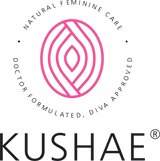This article is for informational purposes only. It is not, nor is it intended to be, a substitute for professional medical advice, diagnosis, or treatment and should never be relied upon for specific medical advice.
"Caveat Emptor": a Latin expression that when loosely translated means "let the buyer beware" became popular as a legal term. In layman's terms, it means that it is the responsibility of the buyer to discover defects or issues in the items that he buys...NOT the responsibility of the seller.
Suggested Read: How to Choose the Best Feminine Wash / Vaginal Wash
---

In this age of capitalism and consumerism, many companies who sell don't care about the dangers behind toxic cosmetic ingredients they use and certainly put their own company's WEALTH before a consumers HEALTH.
So how do you look for defects or issues in the brands you buy?
Step 1: Simply use a "flick of the wrist" and turn the bottle around to the back.
Step 2: Read the ingredients
*WARNING: The actions above may result in shock as you read (or try to read) the harmful ingredients in personal care products, like a feminine wash. May also result in better health as you choose which products to use based on the ingredients listed below.
It always shocks me that people are not aware of what they put on their skin like even glycerin can end up doing damage when used in feminine wash products, check our other blog on 3 reasons why glycerin can be dangerous in feminine washes. Did you know that your skin is the largest organ you have? Did you also know that we absorb up to 60% of what we put ON our skin INTO our bloodstream? Sadly, many of us don't even know what's in the soaps and lotions we use everyday and yet we use them. Every. Single. Day.
Take talcum powder, the main ingredient in baby powder, that women have been using to tackle feminine odor and to stay fresh and dry "down there" for decades. As of 2017, talcum powder has been under investigation for causing ovarian cancer in hundreds of women, many of which have died. The company Johnson & Johnson has paid over an estimated $4B to women and their families as an ongoing settlement. The list of dangerous ingredients doesn't stop there, as there are over 1300 ingredients that have been banned in Europe for use in personal care and cosmetic products, though the US has only banned 11.
According to Harvard Medical School, the National Institutes of Health, and the Breast Cancer Foundation, here is a list of the "Dirty Dozen" harmful ingredients that you should certainly avoid in your personal and feminine care products and go for pH balanced products. These ingredients, and many others, have been found to be linked to harmful outcomes, including cancer and death. So, always use All natural products especially for your feminine wash needs!
The Dirty Dozen
Parabens - Used as a preservative, parabens mimic estrogen and have been found in the tissue of breast cancer tumors. Also listed as methylparaben, butylparaben, propylparaben
SLS/Sulfates - Commonly used as cleansing agents in soaps an shampoos, known skin and eye irritants
Dioxin - The byproduct of bleached materials, especially in pads and tampons, dioxin can cause Toxic Shock Syndrome, bacterial infections on vagina, cancer, amputation, and death.
EDTA - A binding agent for personal care products, EDTA can cause abdominal cramps, nausea, vomiting, diarrhea, headache, low blood pressure, skin problems, and fever.
Toluene - Commonly used as a solvent, toluene may irritate the skin, and is linked to certain blood cancers (malignant lymphoma), exposure to vapors during pregnancy may cause developmental damage in the fetus
DEA - Used to make cosmetics creamy and sudsy, DEA has been shown to cause liver cancers and precancerous changes in skin and thyroid.
FD&C Color - Used to change the color of products, has been linked to hyperactivity in children and respiratory distress.
Synthetic Fragrance - Can be composed of dozens of harmful chemicals, these synthetic fragrances are a known endocrine disruptor, may exacerbate asthma, cause allergic reactions, and trigger migraines.
PEG - Used commonly as a surfactant in soaps and cosmetics, PEG's can increase the incidences of uterine and breast cancers and of leukemia and brain cancer. Also seen as PEG-6, PEG-10.
Phthalates - Commonly used to support fragrances, pthalates are a known endocrine disruptor and can cause developmental and reproductive issues.
Triclosan - Used commonly as an antibacterial agent, triclosan is a known endocrine disruptor, may create bacterial resistance, and cause reproductive toxicity.
Propylene Glycol - Often used as a skin conditioning agent and a penetrating agent, this ingredient aids other dangerous ingredients to penetrate your skin causing dangerous outcomes and reactions.
Note to self: KUSHAE feminine care products does not contain, nor will ever contain any of these ingredients. They are all Doctor Formulated and Natural Diva Approved. :)
XOX,
KUSHAE

















